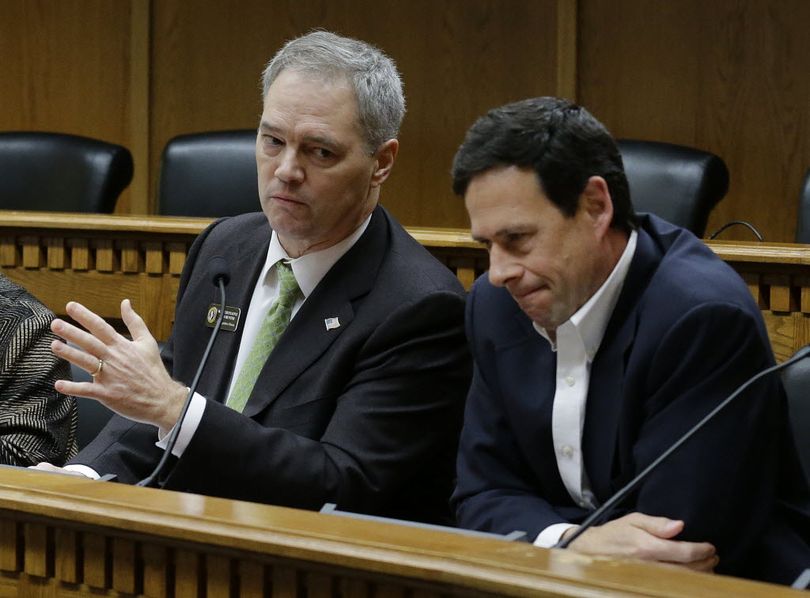Legislative session could be one of myths v. truths

Sen. Andy Hill, the Republican who heads the
“We can keep everything in the government running and put another billion into education,” Hill, of
Sen. Karen Fraser, a Democrat on that committee, countered that Hill’s contention of a deficit myth is a myth. The state is under a court order to improve education, but it has other court mandates as well that will surpass the expected revenue increases, she said.
“State government doesn't do just one thing. The public, they don't want just one thing,” Fraser, of
The Legislature’s top budget experts didn’t agree on taxes, and couldn’t even agree how much it would cost to keep current programs going. Democrats supported a negotiated raise for state employees, saying the state needs to retain its best employees to provide good services to state residents. Republicans said raises for state employees aren’t high on the public’s priority list and suggested merit bonuses instead of across-the-board raises.
Hill and other Republicans wouldn’t categorically rule out support for any tax increases for the upcoming session, but he accused Gov. Jay Inslee of submitting a budget that had tax increases as a first resort, rather than a last resort.
“Well, it’s wrong,” Inslee said later when asked about that characterization of his budget. His office told state agencies to prioritize programs by suggesting 15 percent cuts, looked at savings from efficiency programs and staff reductions and did propose eliminating some programs before estimating what’s needed to comply with state and federal law as well as court orders to improve on education and mental health care. That produces a gap of about $1 billion which Inslee would close with a series of tax increases.
Among them is a proposed capital gains tax on some investment revenue received by the top 1 percent of
Fraser and other Democrats called the state’s tax system, which relies on the sales tax and a business tax on gross receipts the most regressive in the country because poor people pay a much higher share of the income on taxes than the rich. That's a fairly standard criticism of the state's tax system. But Rep. Bruce Granger, of Granger, top Republican on the House Appropriations Committee, said it’s also one of the most stable and produced more revenue every year except one, even in the recent recession.
If the state needs to raise taxes to pay for needed programs, it should pick “a broad-based tax,”
